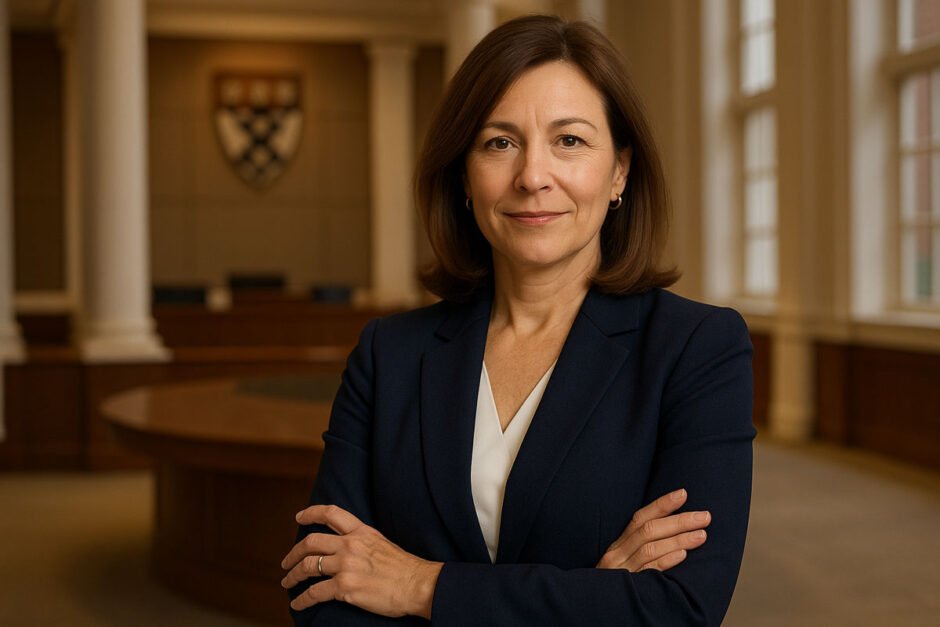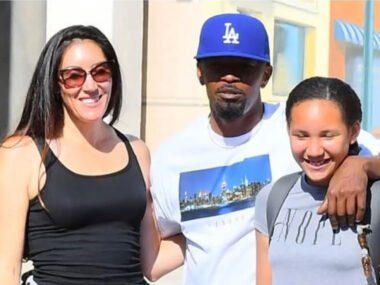When Kristin Mugford walked into Bain Capital’s offices in 1994, she probably didn’t imagine she’d become the firm’s first female director just four years later. Yet that’s exactly what happened, marking a pivotal moment not just for her career, but for women in private equity.
Fast-forward to today, and you’ll find Mugford in a very different setting – the classrooms of Harvard Business School, where she’s the Melvin Tukman Senior Lecturer of Business Administration and Senior Associate Dean for Culture and Community. It’s a career path that might seem unusual, but it makes perfect sense when you consider her passion for both finance and education.
Her story isn’t just about climbing corporate ladders or earning academic accolades. It’s about someone who saw opportunities where others saw obstacles, whether that was in distressed debt markets or in teaching the next generation of business leaders.
Early Life and Educational Foundation
Growing up outside Philadelphia wasn’t exactly a typical start for someone who’d later reshape how we think about corporate restructuring. But for Kristin Mugford, it was perfect preparation. Both her parents were business people, which meant dinner table conversations often revolved around deals, markets, and the art of making things work.
That early exposure to business thinking stuck with her. You could see it in her academic choices – first at Harvard for her undergraduate degree in 1989, then back to Harvard Business School for her MBA in 1993.
The Harvard experience wasn’t just about getting good grades. It was about learning to think differently, to see patterns others missed, and to ask the right questions when everyone else was focused on the wrong answers.
Breaking Barriers at Bain Capital
Fresh out of Harvard Business School, Mugford didn’t head straight to Bain Capital. Instead, she spent several years at Disney, working across different divisions of the entertainment giant. It might seem like an odd detour, but it gave her something invaluable – a front-row seat to how large, complex organizations actually function.
When she finally joined Bain Capital in 1994, she brought that operational perspective with her. The private equity world was different then – smaller, more relationship-driven, and definitely more male-dominated. But Mugford had something that set her apart: she could see the whole picture, not just the financial engineering.
Four years later, she made history by becoming Bain Capital’s first female director. It wasn’t just a symbolic appointment – she’d earned it through her work and her vision for what the firm could become.
The timing was perfect for what came next. Mugford saw an opportunity that others had overlooked: distressed debt. While most private equity firms were focused on healthy companies, she recognized that some of the best deals were hiding in the wreckage of corporate failures.
Pioneering Corporate Restructuring Expertise
That insight led to the creation of Bain Capital Credit, a specialized arm focused on distressed debt and corporate restructuring. It was a bold move – essentially betting that there was money to be made in other people’s financial disasters.
Mugford’s approach was different from the typical vulture fund mentality. She didn’t just want to pick apart failing companies; she wanted to understand why they failed and how they could be rebuilt. This required a deep understanding of operations, not just balance sheets.
The strategy worked. Under her guidance, Bain Capital Credit grew from a startup idea to a powerhouse managing over $30 billion in assets by the time she stepped back from day-to-day operations. But the numbers only tell part of the story.
What made Mugford’s work special was her ability to see potential where others saw only problems. She developed a reputation for taking on the complex cases – the ones where multiple stakeholders had competing interests and no clear path forward existed.
Transition to Academic Excellence
After years of high-stakes deals and boardroom negotiations, Mugford made a decision that surprised many of her Wall Street colleagues: she decided to teach. Not as a side gig or occasional guest lecture, but as a full-time commitment to Harvard Business School.
The transition wasn’t as dramatic as it might seem. Throughout her career at Bain Capital, Mugford had always been drawn to the “why” behind financial decisions. Teaching gave her a platform to explore those questions more deeply.
Her signature course, “Creating Value through Corporate Restructuring,” quickly became one of the most sought-after electives at Harvard. Students didn’t just learn theory – they got war stories from someone who’d actually been in the trenches.
The accolades followed: multiple HBS Student Association Faculty Teaching Awards, the Charles M. Williams Award for teaching excellence, the Robert F. Greenhill Award, and the Apgar Award for Innovation in Teaching. But for Mugford, the real reward was watching students connect the dots between classroom concepts and real-world challenges.
Influential Case Studies and Research
Mugford’s case studies read like a greatest hits collection of corporate drama. Take her analysis of the Caesars Entertainment bankruptcy – a tangled web of governance issues, competing creditor claims, and regulatory complications that would make even seasoned lawyers’ heads spin.
Then there’s her work on the Detroit municipal bankruptcy, which explored uncharted territory where corporate finance meets public policy. It’s one thing to restructure a private company; it’s another entirely to figure out how to save a city.
Her Hertz case study, developed during the pandemic, captured something unprecedented: how a global crisis could turn a routine bankruptcy into a wild ride involving everything from rental car shortages to meme stock trading.
These aren’t just academic exercises. They’re real stories about real companies facing real problems, told by someone who understands both the human and financial costs of corporate failure.
Leadership in Corporate Governance
Teaching hasn’t kept Mugford away from the business world entirely. She serves on the board of Dollarama, the Canadian retail giant, where her restructuring expertise helps guide strategic decisions. She’s also a board advisor for Mosaic, bringing her financial acumen to the fintech space.
These roles aren’t just prestigious appointments – they’re working relationships where her experience directly impacts business outcomes. Companies seek her out because she brings a unique perspective: someone who’s seen businesses at their worst and knows what it takes to turn them around.
Her board service also keeps her connected to current market realities, which enriches her teaching. When she talks about corporate governance in the classroom, she’s drawing on conversations that happened in boardrooms just weeks earlier.
Legacy and Future Influence
Looking back at Mugford’s career, it’s tempting to focus on the firsts – first female director at Bain Capital, pioneering work in distressed debt, innovative teaching methods. But that misses the bigger picture.
What makes Mugford’s story compelling isn’t just what she accomplished, but how she did it. She succeeded by being genuinely curious about why businesses fail and how they can be saved. That curiosity led her from Wall Street to Harvard, from private equity to public education.
Her influence extends far beyond the students who’ve taken her classes or the companies she’s helped restructure. She’s shown that expertise in one field can enrich another, that practical experience and academic rigor aren’t opposing forces but complementary strengths.
As business education continues to evolve and corporate restructuring becomes increasingly complex, Mugford’s approach – grounded in real experience but elevated by intellectual rigor – offers a model for how to bridge the gap between theory and practice. Her legacy isn’t just in what she’s taught, but in how she’s taught others to think.










